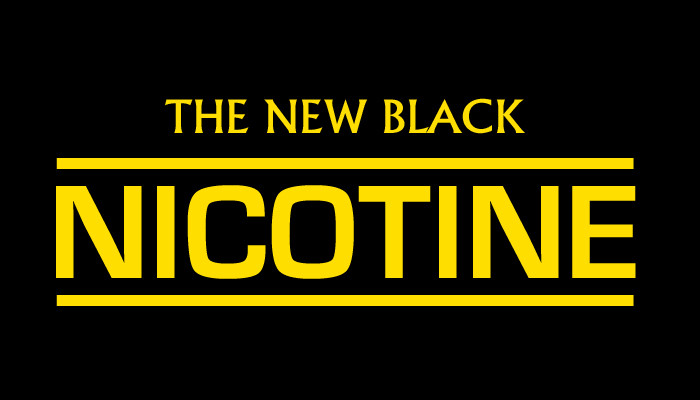You’re at work, it’s the middle of the day, and you want to crawl into bed and siesta for hours, even though you still have five pages left to write. There’s just no energy left, much less the concentration you need to conjure up 1,500 additional words. What to do?
A better question would be: What brought you to this dire state of affairs? Lack of daily exercise? Poor diet and overall health?
Old Habits Die Hard . . . And They Take Warm Bodies With Them
Most Americans reach for a cup of coffee or tea, and will consume 6-12 cups throughout the day. Coffee offers an alluring aroma, great taste (thanks to all the additives), warmth and, best of all, a smart pick-me-up from caffeine that gets you through to the five-o’clock whistle. Unfortunately, that kick can be a jittery nervous twitch rather than the relaxed alertness you get from tea.
Tea contains small concentrations of caffeine and the pharmacologically similar theophylline, but its kick primarily comes from the stimulant theobromine, which also has a calming effect and produces heightened mental awareness. Tea is consumed in far greater quantities than coffee, and has been around the western world since the 1600s, when Portuguese Jesuits introduced it from China. Bless those busy Jesuits. Tea also has additional desirable pharmacological properties that far surpass those of coffee.
It’s debatable which drink provides better stimulation when your energy levels drop too low, but one item is certain: both are thoroughly abused by millions of Americans who should instead be exercising, eating healthfully, and looking after their health.
So, when you’re at your lowest energy level during the day, should you reach for coffee or tea?
Neither.
Let’s not get into the issue of exercise, good diet and clean health. You’re not likely to change your behaviors overnight. Let’s just assume your mind and body need an artificial stimulant that will give you a relaxing mental uplift without the jittery side effects.
So If Neither Coffee Nor Tea Are Recommended, Then What?
The best alternative to coffee and tea is a chemical you probably never considered: nicotine.
No, I’m not suggesting you buy a pack of smokes and start a new bad habit. The most popular forms of nicotine are the “smoking-cessation” transdermal patch, chewing gum, nasal inhalers and spray, and e-cigarettes, all of which you can buy in most drugstores and big-box stores. E-cigarettes are available online and from specialty shops in most cities, but many are now warning us that e-cig’s have additional chemicals in them that may harm your lungs.
Nicotine Is Not Addictive
I need to address one major issue: Nicotine is not addictive in any way whatsoever. Cigarettes are addictive, but not because of nicotine.
When the Seven Dwarves (seven CEOs of BigTobacco) gave sworn testimony at The Waxman Hearings on 14 April 1994, each testified that “nicotine is not addictive.”
As much as it pains me to say, they were absolutely accurate.
Those trumped-up “hearings” were well scripted in advance and specifically designed not to demonize BigTobacco’s cash cow, processed-tobacco cigarettes. What the Seven Dwarves did not share was that their processed-tobacco cigarettes, which contain thousands of harmful chemicals, are highly addictive, but not because of nicotine. They also used “cigarettes” and “nicotine” interchangeably, a clever and deceptive tactic and long-term strategy that confuses most.
“Studies have shown that none of the nicotine replacement therapies—chewing gum, inhalers, patches—none of those are addictive. Nicotine is not addictive. So what’s going on?” —Peter Killeen, PhD
The addictive properties of processed tobacco arise from several chemicals the tobacco industry wants to keep secret: anabasine, nornicotine, anatabine, cotinine and myosmine. There’s also acetaldehyde, which is a known carcinogen and causes cancer in humans via overconsumption of alcohol and processed tobacco (cigarettes, smokeless tobacco, cigars). Given that processed-tobacco cigarettes contain at least 4,000 other chemicals, it’s reasonably accurate (although dangerous in scientific circles) to assume that there are other harmful and even carcinogenic chemicals in the mix. After all, processed-tobacco cigarettes kill more people across the planet than any other substance.
Nicotine as an Alternative to Coffee and Tea and Why You Should Care
Like tetrahydrocannabinol (THC), the active neuropharmacologic ingredient in marijuana, nicotine has specific and non-specific receptors in the human brain to which it binds, which means we humans are genetically and evolutionarily designed to “receive” nicotine (and THC). More important, nicotine has neuroprotective properties: when it binds to nicotinic receptors in the striatum of the human brain, it stimulates the release of dopamine, a neurotransmitter that increases attention, boosts memory, and is involved in reward-seeking behaviors and pleasure.
In people with Parkinson’s disease, dopamine is either in short supply or the synapses across which it diffuses are dysfunctional. Nicotine, by stimulating the production of dopamine, partially overcomes this deficit and may be able to reduce the symptoms of Parkinson’s.
There are as yet no human trials, but results from studies in squirrel monkeys showed that nicotine administration decreased Parkinson’s tremors and tics by 50%, among other promising outcomes. Similar conclusions have been demonstrated in other animal models.
Considering all the above, nicotine is an excellent “pick-me-up” throughout the day, because it does not have the side effects of coffee or tea, and it increases one’s overall memory and attention.
It should not, however, be ingested if you have heart problems or high blood pressure. Be warned: your doctor, who was trained under the rules of the American Medical Association, will likely dismiss you outright if you inquire about nicotine.
Look Out For #1: You!
It is unlikely that BigTobacco and its powerful lobby will “permit” any long-term studies of the benefits of pure nicotine, as any positive outcomes, like those described above, would surely dent the enormous profits of the billion-dollar-a-year tobacco industry.
For years my Dad and I have been conducting an experiment, using daily nicotine (14-mg or 21-mg) patches as a healthful boost to our memory and alertness. Anecdotally, I have seen a noticeable increase in both memory retention and alertness during the day, especially when I normally would take a siesta, without any side effects whatsoever. I supplement this “therapy” with regular exercise (running!) and a reasonably good diet (hey, I love Wendy’s Baconators and loud Doritos). My blood chemistry is in the normal limits for me. Oh, and I never drink coffee or tea, only distilled water and homemade veggie/fruit juice.
Nicotine addictive? That’s just dirty vapor.
Please look out for yourself by exercising, eating well, thinking positively, connecting with other people and animals, and doing your own good research on topics like this one. The results may surprise you. . . .
REFERENCES
Bevins RA, Caggiula AR (2009). The Motivational Impact of Nicotine and Its Role in Tobacco Use. Springer, New York.
Centers for Disease Control and Prevention (2002). Annual smoking attributable mortality, years of potential life lost and economic costs—United States, 1995–1999. Journal of the American Medical Association 287:2355–2356.
Killeen, Peter R. (2011). Markov model of smoking cessation. Proceedings of the National Academy of Sciences, 108 (Supplement 3) 15549-15556.
Van Amsterdam J, Talhout R, Vleeming W, Opperhuizen A (2006). Contribution of monoamine oxidase (MAO) inhibition to tobacco and alcohol addiction. Life Sciences 79:1969–1973.
Waxman, Representative Henry (1994). “Oversight hearing on tobacco products.” Congressional Record 140:40 (April 14, 1994).
Weinberg BA and Bealer BK (2001). The World of Caffeine: The Science and Culture of the World’s Most Popular Drug. Routledge, London.
West R, Hajek P, Foulds J, Nilsson F, May S, and Meadows A (2000). A comparison of the abuse liability and dependence potential of nicotine patch, gum, spray and inhaler. Psychopharmacology 149:198–202.
Windom RE (1988). The health consequences of smoking: Nicotine addiction. 20th Report of the Surgeon General. Superintendent of Documents, Washington, DC.
MEET YOUR AUTHOR
Tripsy South is the author of the novel SUICIDE TANGO. Trained in physics at a cool surfer university, she lives and plays in Los Angeles where she’s a freestyle writer/editor and copywriter. Ring her here.


One thought on “Nicotine Is Not Addictive. Yes, Really”
Comments are closed.